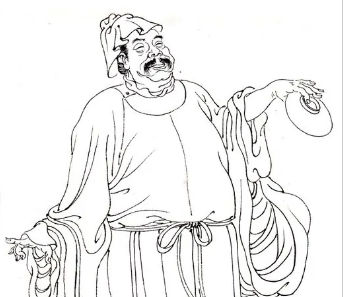In the historical context of the Three Kingdoms, the talent recruitment strategy of the Shu Han Kingdom has always been praised by later generations. In particular, the reuse of Jiang Wei, Xiahou Ba, and Wang Ping, three individuals originally from the Wei Kingdom, demonstrates Liu Bei and his successors' enlightened view of talent. This article will explore the reasons why these three Wei Kingdom figures were able to gain prominence in Shu Han.

Jiang Wei, originally a minor official from Tianshui Prefecture, later defected to Shu Han and became Zhuge Liang's favored disciple and successor. Jiang Wei's reuse was due to his high military talent and political wisdom, as well as Zhuge Liang's recognition and cultivation of him. Jiang Wei played a crucial role in Shu Han's military expansion, especially known for his unwavering spirit and consecutive Northern Expeditions.
Xiahou Ba, a nephew of the famous general Xiahou Yuan from the Wei Kingdom, surrendered to Shu Han due to political exclusion. Xiahou Ba's reuse in Shu Han was primarily attributed to not only his own talents but also his profound understanding of the internal situation of the Wei Kingdom. His addition strengthened Shu Han's strength against the Wei Kingdom and also demonstrated the inclusive mindset of Shu Han's rulers in talent utilization.
Wang Ping, originally a general from the Wei Kingdom, was captured in a battle and later defected to Shu Han. Wang Ping's reuse in Shu Han stemmed from his display of loyalty and bravery, coupled with his military experience, making him a formidable general in Shu Han's army. His performance in numerous battles earned him the respect and trust of his Shu Han colleagues.
The common reason for the reuse of these three Wei Kingdom figures in Shu Han was their outstanding abilities and loyalty to Shu Han. The rulers of Shu Han adopted an open attitude in talent utilization, regardless of origin or past, as long as they had the ability and willingness to serve Shu Han, they could be reused. This talent recruitment strategy was quite advanced at that time and provided talent support for Shu Han's stability and development.
In summary, Shu Han's ability to reuse Jiang Wei, Xiahou Ba, and Wang Ping, the three individuals originally from the Wei Kingdom, was not only due to their personal abilities and loyalty but also due to the enlightened and inclusive nature of Shu Han's rulers. This philosophy of talent utilization transcending geographical and background boundaries still holds certain enlightenment significance for talent management in today's society.
Disclaimer: The above content is sourced from the internet and the copyright belongs to the original author. If there is any infringement of your original copyright, please inform us and we will delete the relevant content as soon as possible.






























